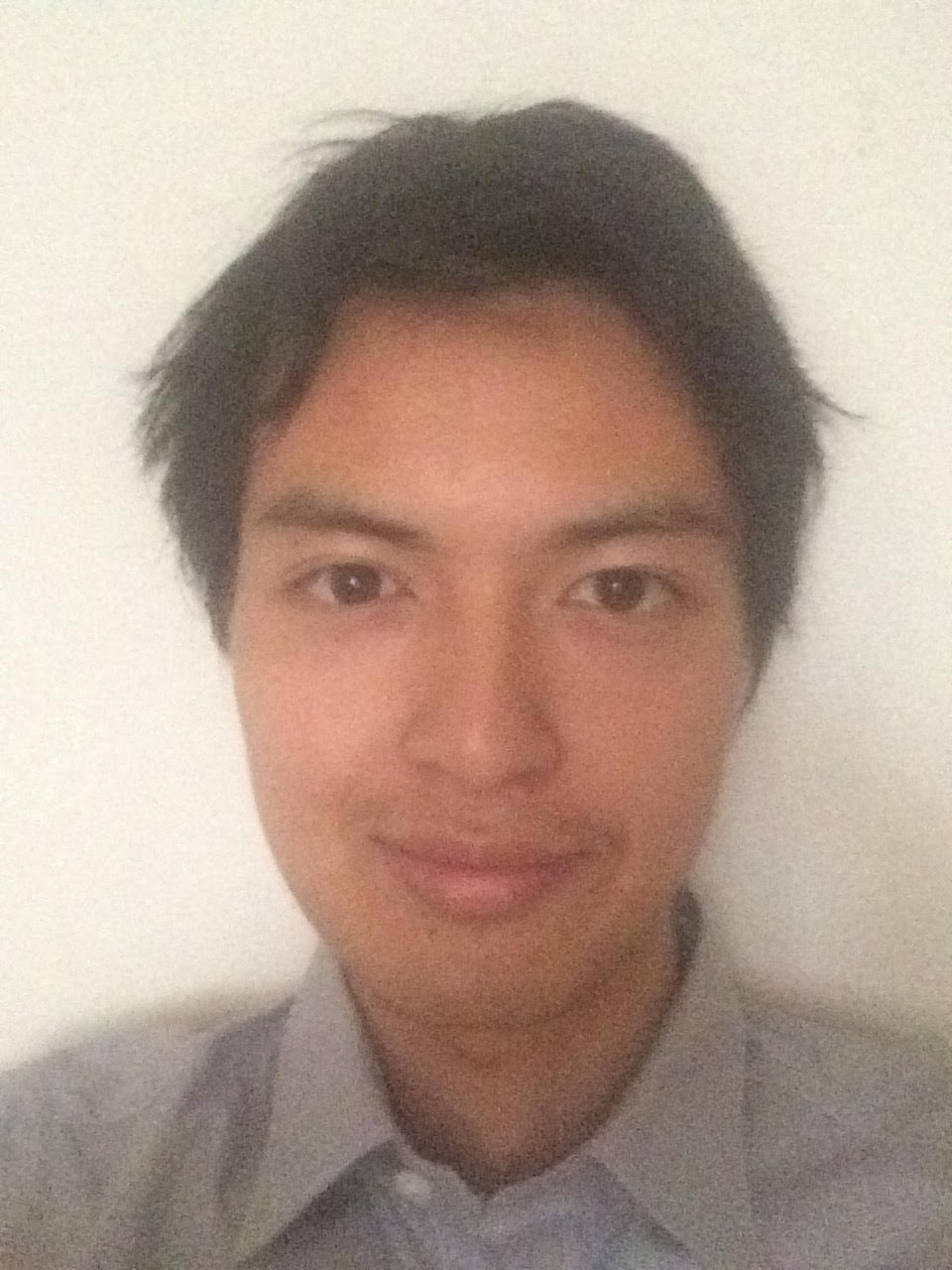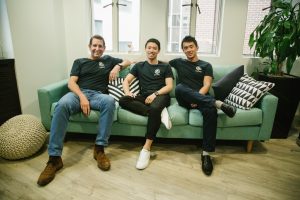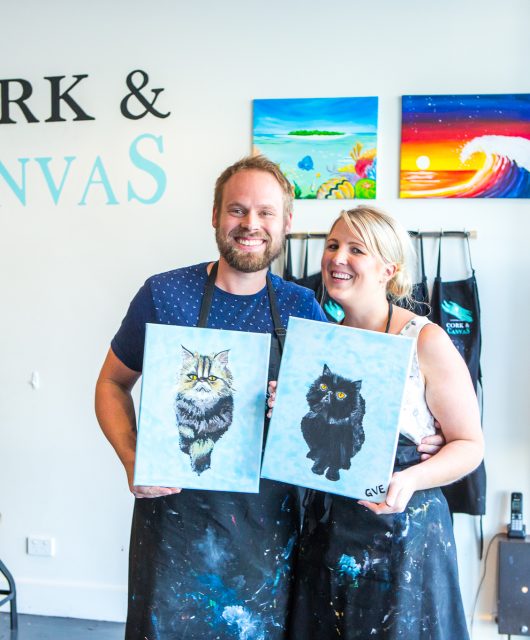I started my first business when I was 17 during the first year of university. Named Hero Education, it was basically a HSC tuition centre focusing on STEM subjects. I started it because education is a powerful thing, not only in the way that it shapes young people in academia, but as teachers and educators, we can change the trajectories of students, being role models before anything else.
That’s what I really focused on at Hero, to help students find their path in life. It’s always study with these kids and their parents might have even forced them to go to tutoring. The fact that we were able to provide another aspect for them, not just being a teacher but being their friend and giving guidance, really motivated me.
This was the first point that made me go into entrepreneurship and really fall in love with it. I saw the power you have when you bring something new to the world, to have people interact with it and improve their lives for the better. It’s the best feeling in this world.
Many years of studies have enabled me to secure a good job at a big law firm. Was I going to throw all that away?
When I finished up with university, Hero had run for five years and I soon received a graduate job offer to go into one of the big five law firms. I thought to myself I have the rest of my life to work, what’s the rush, so I asked if I could get a year off and they said a year’s too long and gave me six months.
In that very six months, I didn’t go on holidays in Europe, take a post-uni break or travel the world like others do. What I actually did was starting Checkbox. My experiences from Hero had led me to believe there was something special in creating a business, so I made a promise to myself that if this Checkbox project doesn’t work out, I will go back to corporate.
I know what you would think, that it’s too ideal right? Quitting a big five law firm job to go do a startup. Many people around me thought I was really courageous, but honestly, I was scared as well. When I announced my intentions to start a company, I remember the immense pressure I felt from my parents, friends and peers.
It just kept growing and growing the more my heart leaned towards Checkbox. I do understand their worries. I mean my whole entire academic life has been built up for me working for a big company, to get a good pay and attain that stable, rewarding life. Am I about to throw all that away for a startup dream?
In the end, however, it didn’t matter how much advice my friends or parents gave. What I found out was that it all came down to myself in the end. As the saying goes, you should know yourself better than anyone. I wanted to start my own business, I just had that gut feeling because I knew if I didn’t I would miss out on something.
So I put my heart into it and in those 6 months, I worked my butt off and ticking off all the boxes I set. With that, I handed my resignation.
Now in those six months, there were many ups and downs. Usually, you would think in a successful startup, “This guy’s got a brilliant, innovative idea. Let’s work on that and we’ll make a million dollars.” I wish it was this simple but in fact, the journey to beginning Checkbox faced constant rejection.
People always tell me, “I can’t start my own thing because I don’t have an idea, or even if I have an idea it’s not creative or innovative.” That’s not true. The thing is you don’t need a creative or innovative idea to start something, you just need some idea and a lot of motivation to work on it. The reason I say this is that you will rarely find someone who has the right idea straight away.
My first idea for Checkbox was actually called Comployment, which stands for compliance and employment law. This came after I found it difficult looking at managing compliance and regulation even as a law student. Originally I wanted to create a mobile platform app, that tracks the health status of your business, giving you a checklist to stay compliant.
As cool as that sounds I decided I needed to test my idea out. That day I went out everywhere in the city, and from that 9-5 stretch, I remember talking to all sorts of people about my idea. The feedback I got was like a wakeup punch. When asked if they thought my solution would be helpful, they said yes, when asked would you pay for it, they gave a simple and direct no.
What I learnt quickly is small business owners only pay for more revenue. They are up for less costs but they won’t pay for risk mitigation as the changes are slim and even if they got in trouble, they would get a small penalty. So without a revenue or business model, it was a product that no one will pay for.
So I started to pivot, changing and reworking Checkbox’s direction. I started to tailor this idea to franchises because they are usually small and struggled with compliance but they also have a franchiser at the top that might care enough to pay for compliance.
I probably drafted more emails than ever during that time, literally spending every single day just trying to reach out to these franchises and getting a reply. In the midst of many rejection emails on my laptop, I ended up reaching out to a few CEOs of some big franchises such as the CEO of Miss Chu who brought the tuckshop concept to Australia and Head of Zoo Retail, Boost juice etc.
I couldn’t be happier when I heard they wanted to talk to me. There was so much excitement built up and I thought this was the major chance. I bought them coffee, did all the prep work to impress, but once again my idea was rejected. I quickly learnt from them that the franchise industry is very resistant to the changes in processes and technology. At that point, I really began to worry about my direction for Checkbox. Was I doing the right thing? Where did I go wrong?
This is what I really want to tell you about my journey. The real concept behind Checkbox didn’t emerge from my first idea, nor my second, third etc. What really happens is you start with one idea and go through the process of engaging with customers and the market, understanding whether there is a real fit for this.
A lot of people don’t understand that is a long process. I’ve seen people in startups that get impatient. They start with an enthusiastic idea and when they get shut down, they become demotivated. They start to think “Oh this idea is not for me”, ending up giving up on developing on that original idea. When it comes to turning points like this, it’s about having the patience and resilience to go through a process whilst trying to constantly refine that idea.
All this changing and refining got to a point where I had no clue what I was doing anymore
As I said no person starts with the right idea, and its okay to get demotivated. When I was starting off, I was solo for about 4 months running the show all by myself. Those were the days when I was just going out there and hoping that one person would buy my idea. Amidst all the rejection, I still had to try and force out that positive smile, even though on the inside I was hurting.
You keep getting negative feedback and you want to tell yourself it’s constructive, that it’s all good but mentally its negative. That’s why having a certain resilience is very important. You shouldn’t give up on your dream at the end, so you must pick yourself up and continually refine yourself.
I remember there was a point in my journey, a moment, where me and the current CTO James Han, who still works for me now, were sitting in a shopping centre at Redfern after meeting some potential partners. We had received the usual feedback, that this wasn’t going to work out. We were sitting by this bench, sitting there really defeated, head bobbing down, just feeling drained and at the limit. We both had the same thought in our minds, “What are we really doing?”.
By this time we had spent nearly six months on this, but we were still not going anywhere and we were literally lost. I couldn’t believe that having started so enthusiastically with an idea, all these stages of pivoting, talking to customers got to an extent where I just had no direction anymore. At parties, it became a standard that my friends would ask me how Checkbox was and I just got so depressed when they asked me this question because I didn’t know what I was doing anymore.
Now this wasn’t some Hollywood movie where I turned everything around, but on the bench I said to James, “Hold on a second, if we keep listening to our customers, keep building the company and the product in that direction to what they will pay for. It is impossible for us not to build a successful business. As long as you keep listening to your customers, and you deliver what they need in the end, I guarantee they will eventually buy that product.”.
This mentality has stuck with us today, and although we still faced so many walls afterwards, we were able to make it past the dark time. Now it’s been two years, and it’s grown from just me, a 22-year-old kid from university who really didn’t have any big dreams growing up. Now there is a team of 30+, with millions of dollars in backing and tier-one customer across Australia and overseas. So it shows that you can achieve a lot, it starts from calculated risks, not reckless risks. It’s about being hardworking and resilient because the journey is very tough.
Remember your ideas may change, but the resilience in your heart to pursue your dream should remain steadfast.
Evan Wong is the founder of the multi-award winning platform Checkbox. He is also the founding mentor of Hero Education, aiming to guide young students on their future path. For the in-depth story, check out our next issue on ECX.

Journo for ECX Magazine













